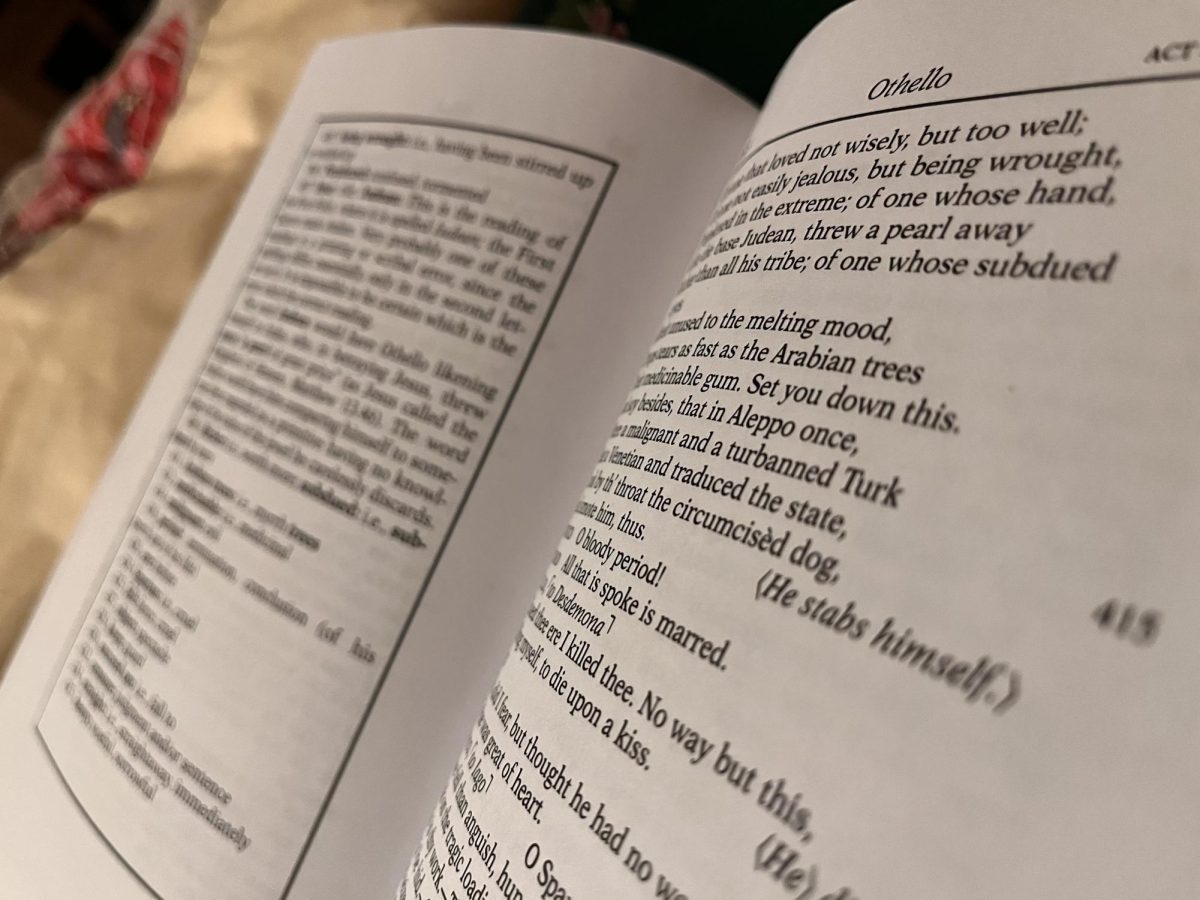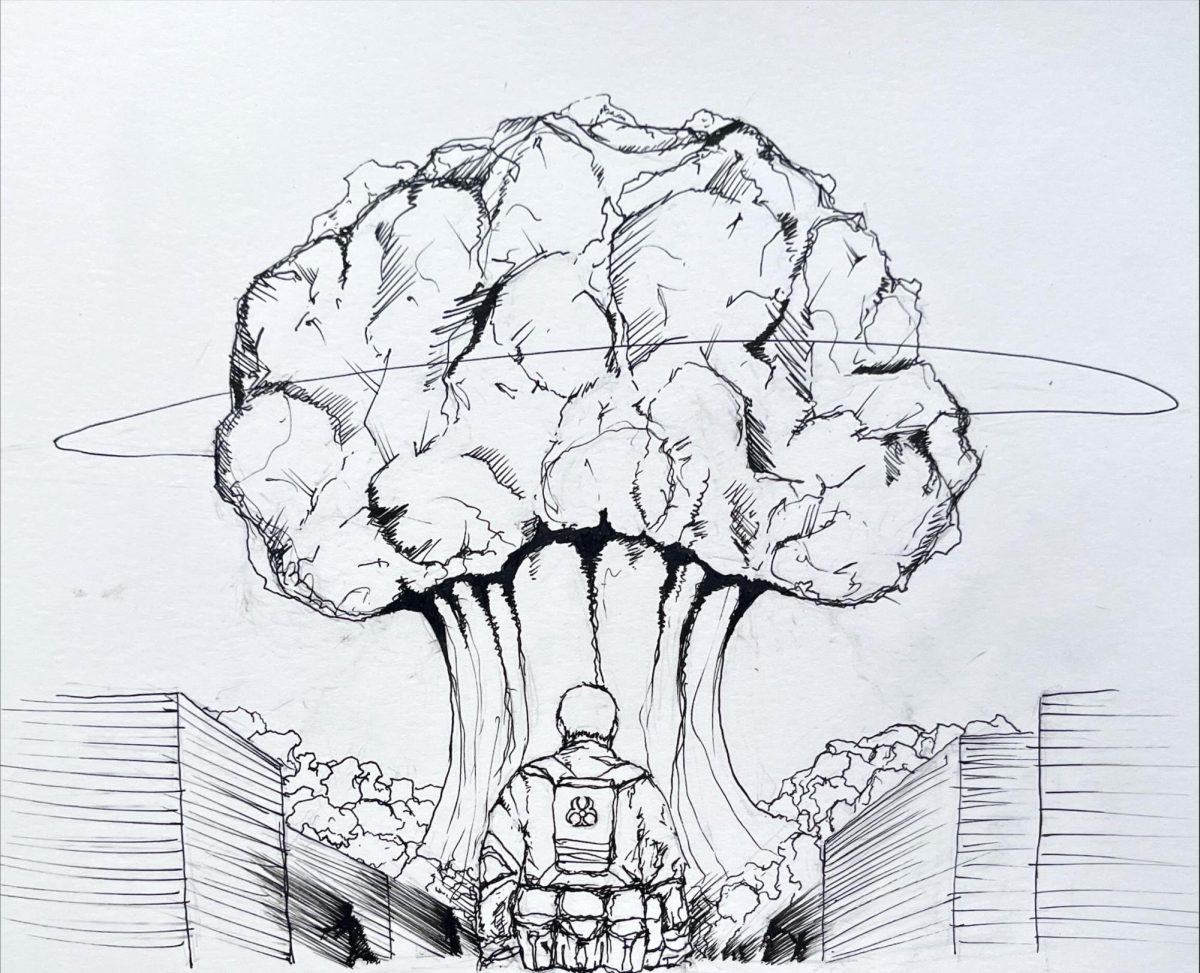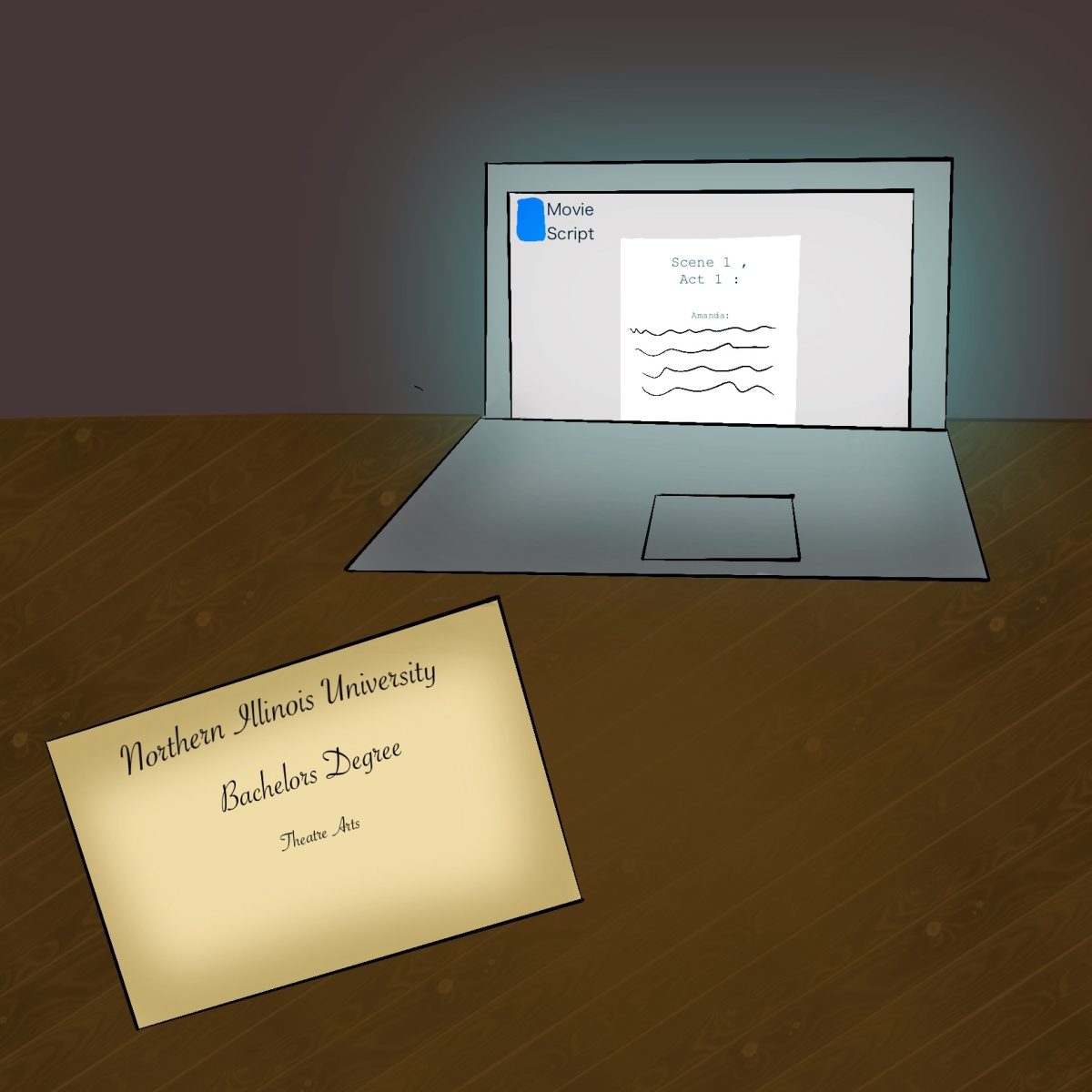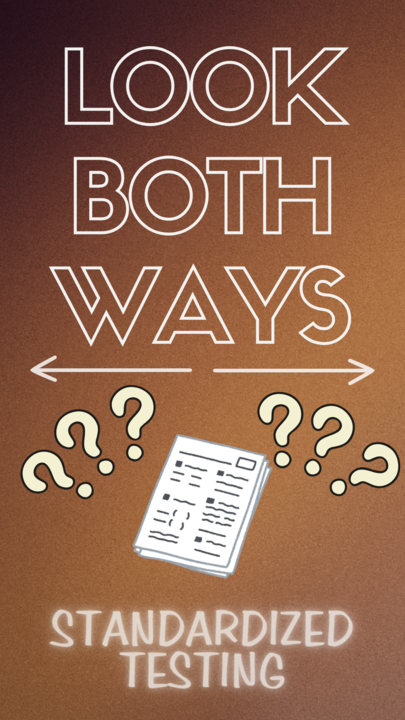Editor’s Note: This column was updated at 10:40 a.m. to clarify Shakespeare was written in Early Modern English.
Early Modern English is an incredibly outdated form of language academics and artists need to let fade away. The main problem with Early Modern English is it’s overused but, paradoxically, obsolete.
Theater provides a prime example of the issues Early Modern English presents. Especially at NIU, which is a Meisner school due to the use of the techniques developed by Sanford Meisner in the school’s training of theater students.
Meisner techniques are very classical. This leads to a lot of Shakespeare and Shakespeare-esque work being prioritized. While this is not inherently bad, it does cause actor and audience fatigue while preventing modern works from receiving recognition.
Sonya Dunn, a junior pursuing a bachelor of fine arts, believes while it is good to be in touch with the root of theater, there are more current and real issues contemporary works cover.
“It’s good to enjoy the fantasy of Shakespeare and keep in touch with the beginning of theater, but there are issues that other plays cover that we should be performing that are much more important today,” Dunn said.
Another problem stems from Early Modern English plays themselves. While plots may be well constructed and characters well developed, audiences and readers of Early Modern English media can walk away feeling lost simply because the language itself makes little sense, according to Iris Reading, a learning center in Chicago.
The way characters speak in Early Modern English productions makes it feel as though it is not a recognizable language, and in a setting like a play, or even a movie, it is hard to keep up with the plot points.
Carrie Szostak, a junior theater studies major, believes use of these old works makes for complicated experiences as people try to understand the stories.
“Old English stories, such as ones by Shakespeare, often get lost in translation because people can’t fully understand all the things that are being said,” Szostak said. “Because of this the effect of the story gets lost.”
Shakespeare actually wrote in Early Modern English, but Szostak was referring to the language used by Shakespeare in his work.
Moving away from Early Modern English and focusing on contemporary media or adapted versions of Early Modern English stories would solve the issues that people have in understanding the characters’ words and keeping up with the overall plots.
Most Shakespeare works and works of other writers from the renaissance era already have versions that use modern language and are much easier to understand. An example can be seen in the classic Shakespeare play “Macbeth.”
Toward the end of the play, as Macduff approaches the castle to siege and eventually kill Macbeth, a messenger approaches Macbeth and warns him of trees he saw moving — Macduff used the trees as cover — and Macbeth’s words to this messenger read much clearer as a translation than in the original text.
If these works must be performed or taught, it should be done with modernized versions of the texts.
Alternatively, it would be more conducive to shift the focus of theater curriculums to more modern and contemporary stories.
It is much easier for audiences to connect with modern day texts over those in Early Modern English. Characters of modern works deal with conflicts and experiences that people of today can identify with because they reflect much more of their own lives.
An example of this can be seen in the play “Topdog/Underdog” by Suzan-Lori Parks.
In “Topdog/Underdog” we see a sibling rivalry play out between two brothers named Lincoln and Booth. Both brothers are striving to thrive in life after an arduous upbringing. Lincoln does this by trying to live an upstanding life while his brother inevitably goes the opposite way into crime and hustling.
As a result, Booth eventually brings Lincoln down with him. It’s a play that displays themes of complicated sibling dynamics, violence and masculinity. It conveys all these themes masterfully and in a way that everyone can relate to. This relatability makes modern day works — like “Topdog/Underdog” — easier to connect with and understand.
Early Modern English stories are not terrible stories. They are, however, outdated.
Because of the nature of their language, Early Modern English plays do not fit in today’s world and should be slowly phased out, or — at the very least — changed so they mesh easier with the brains of people who grew up in the 21st century.















